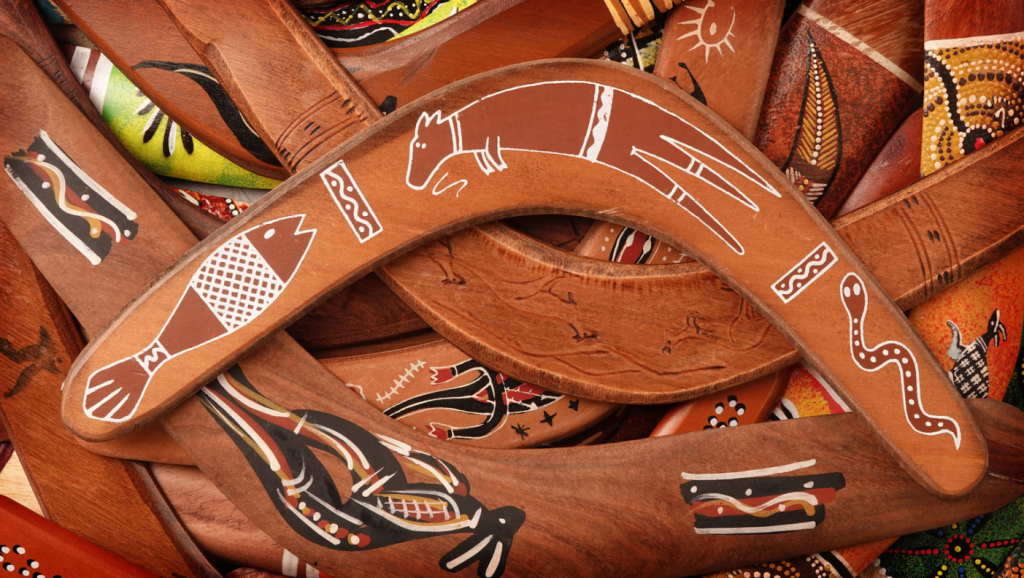AUSTRALIA’S RICH AND DIVERSE CULTURE
The Western Culture is a primary influence for those in Australia, but they were also influenced by the geography and from the culture and traditions of the Aboriginal, Torres Strait Islander, and other Australian people. The British colonisation of Australia began in 1788, and waves of multi-ethnic migration followed.
Australia, often referred to as the “Land Down Under,” is a vast and diverse country known for its stunning landscapes, unique wildlife, and vibrant culture. This island continent, located in the Southern Hemisphere, has a rich cultural tapestry that has been shaped by its indigenous heritage, waves of immigration, and its unique geographical and historical context. Now, we will explore the multifaceted culture of Australia, encompassing its indigenous roots, multicultural society, language, art, and traditions.
1. Indigenous Heritage
Australia’s culture begins with its Indigenous peoples, who have inhabited the continent for more than 65,000 years. The Aboriginal and Torres Strait Islander communities represent the world’s oldest living cultures. Their deep connection to the land, known as “Country,” forms the foundation of Australian culture. Dreamtime stories, dot painting, and intricate symbols are integral parts of their rich traditions. The concept of stewardship of the land, or “caring for Country,” is fundamental in Indigenous culture, emphasizing the importance of preserving the environment for future generations.
2. Multicultural Society
Australia is celebrated for its multiculturalism. It has welcomed people from all corners of the globe, creating a vibrant and diverse society. The post-World War II immigration boom brought waves of European migrants, contributing to the country’s cultural mosaic. More recently, Australia has seen an influx of people from Asia, the Middle East, and Africa, further enriching its cultural tapestry. This cultural diversity is celebrated through various festivals, cuisine, and traditions, making Australia a truly cosmopolitan nation.
3. Language and Communication
English is the official language of Australia and is spoken by majority of the population. However, the Australian accent and unique slang make their English distinctive. Australians are known for their use of colloquialisms, such as “G’day” (hello), “mate” (friend), and “barbie” (barbecue). The language reflects the country’s laid-back and friendly culture. Additionally, Australia’s multiculturalism means that many languages from around the world are spoken, reflecting the rich tapestry of the nation’s immigrant populations.
4. Arts and Entertainment
The arts scene in Australia is vibrant and diverse. The country has produced world-renowned actors, musicians, writers, and artists. The film industry has gained global recognition, with directors like Baz Luhrmann and actors such as Nicole Kidman and Hugh Jackman achieving international acclaim. The National Gallery of Australia and the Sydney Opera House stand as iconic cultural institutions, showcasing the country’s artistic achievements.
In music, Australian artists like AC/DC, INXS, and Sia have made their mark on the global stage. Furthermore, Australian literature boasts talented authors, including Colleen McCullough and Tim Winton, who have received international recognition for their works.
5. Sports and Recreation
Sports hold a special place in the hearts of Australians. Cricket, Australian rules football, rugby, and swimming are just a few of the sports that Australians are passionate about. The nation has produced legendary athletes such as cricketer Don Bradman, swimmer Ian Thorpe, and tennis player Rod Laver. Events like the Melbourne Cup and the Sydney to Hobart Yacht Race are celebrated across the country, bringing people together in the spirit of competition and camaraderie.
6. Indigenous Art and Traditions
Indigenous art is a prominent feature of Australian culture, with traditional and contemporary forms of expression. Aboriginal art often employs dot painting, using intricate patterns and symbols to convey stories and connection to the land. These artworks have not only gained recognition in Australia but have also made their mark on the international art scene. Indigenous dance and music, such as the didgeridoo, provide a powerful way to convey stories and preserve cultural heritage.
7. Culinary Delights
Australian cuisine is a reflection of its diverse culture. With a combination of Indigenous ingredients, European influences, and Asian fusion, the country’s culinary scene offers a wide array of flavours. Iconic dishes include the “Aussie meat pie,” the “Tim Tam” chocolate biscuit, and the famous “Vegemite” spread. Additionally, seafood is a significant part of the Australian diet, thanks to its vast coastline. The “barbie,” or barbecue, is a beloved social tradition, often celebrated with friends and family on weekends.
8. Holidays and Festivals
Australia celebrates a variety of national and cultural holidays. Australia Day, celebrated on January 26th, marks the anniversary of the arrival of the First Fleet of British ships in 1788. It’s a day of national pride but also a day of reflection for many Indigenous Australians. Other significant holidays include Anzac Day, which honours the members of the Australian and New Zealand Army Corps who served and died in wars, as well as holidays like Easter and Christmas, celebrated in a manner similar to other Western countries.
Australia’s multicultural society means that a wide range of cultural festivals are celebrated throughout the year, including Chinese New Year, Diwali, and Eid al-Fitr. These celebrations provide opportunities for cultural exchange and appreciation among different communities.
Now, Australia’s culture reflects its unique history, geography, and the diverse people who call it home. With a deep respect for its Indigenous heritage, a vibrant multicultural society, a distinct language, and a thriving arts and sports scene, Australia is a rich tapestry of traditions, beliefs, and customs. Its culture embodies the values of inclusivity, respect for the environment, and a laid-back, friendly demeanour that makes it a truly unique and captivating nation. This ever-evolving culture continues to be shaped by the ongoing contributions of its people and remains a source of national pride for all Australians.
It’s time for you to visit Australia. To get more information you can:




